What do you need for a wedding and how to prepare for it?
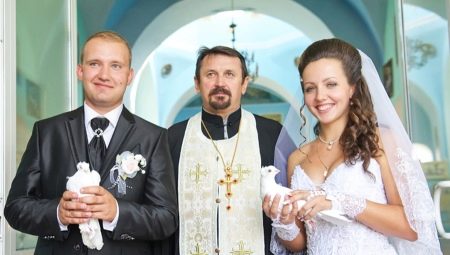
The painting in the registry office legally establishes the union of two people who have decided to start a family. A wedding is a spiritual union of loving hearts who have received divine blessings. Tribute to fashion or compliance to parents should not become a criterion for choosing to conduct a ceremony: only a spiritual understanding of what is happening and a readiness for a lasting union.
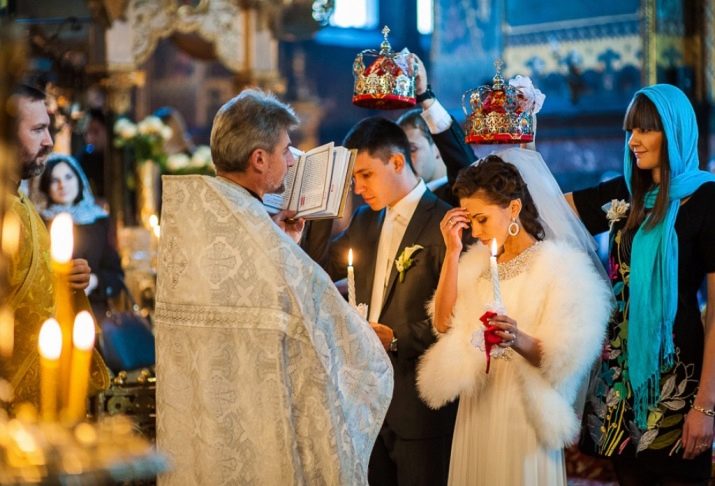
Why is it necessary to get married?
The wedding is one of the seven sacraments given to us by the Holy Spirit. When Orthodox people get married, they receive a blessing from above for creating a strong family, for having and raising children. It is important to take the ceremony seriously, to understand its spiritual essence, the focus of the family on a righteous life, so that children are not born in fornication, but come into the world with divine blessing in a married family.
People in love should tune in for a long life "in the same boat", to the labor of building relationships, to love, trust and compliance, respect and respect for each other. And in grief and joy to be together, to support and not leave our "halves", because really, the wedding takes place only once, and for the second or third time this ceremony is allowed due to our weakness, so that we do not fall into an even greater sin, living in new families.
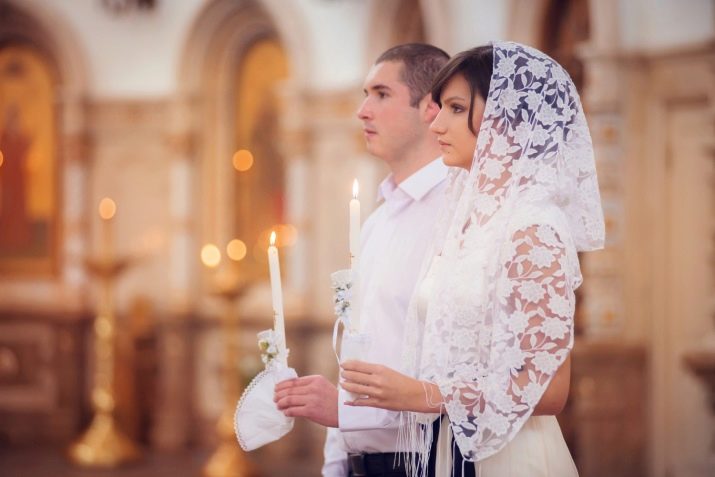
If the desire to get married comes from the heart and the young are confident in each other, you should familiarize yourself with the church rules in order to understand if there will be obstacles to the ceremony. The wedding will not take place if:
- young married (have other families);
- there is no marriage certificate provided by the registry office;
- one or both spouses are not baptized in Orthodoxy;
- are blood relatives;
- are in a spiritual relationship (for example, they were appointed together as witnesses at the wedding of their friends);
- one or both spouses of non-Orthodox faith or atheists;
- you cannot marry girls under 16, and boys under 18;
- they refuse mentally unhealthy people who cannot fully understand what is happening.
If there are no obstacles to the wedding ceremony, some documents and ceremonial attributes should be prepared.
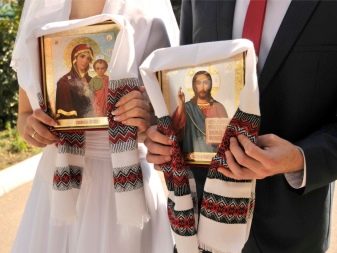
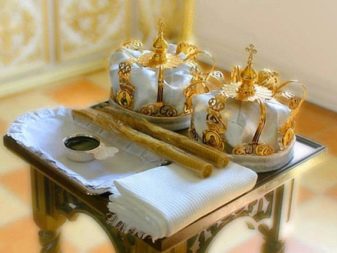
Required documents and accessories
The documents
In pre-revolutionary Russia, a wedding was the only legal act confirming the formation of a new family. The wedding records have been kept in church books for centuries. Nowadays, only a marriage certificate and a stamp in the passport are legally binding, and they should be presented to the church. Before the ceremony, the priest must make sure that the newlyweds are not in other marriages.
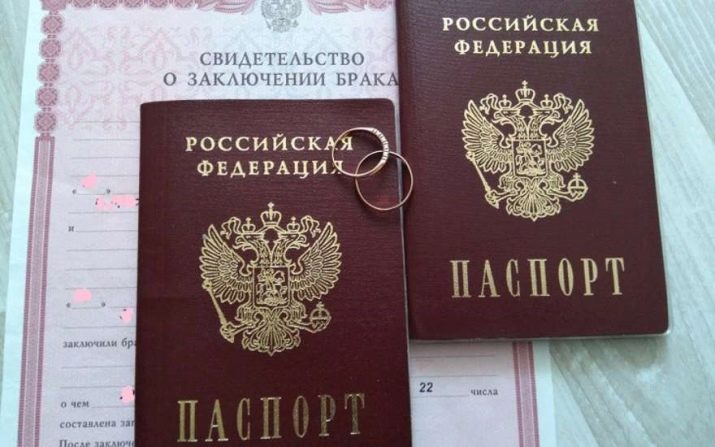
Wedding set
What you need to purchase in advance for the wedding ceremony:
Icons
It is required to take with you the icons of the Savior and the Kazan Mother of God, they are necessary during the church ceremony. Homemade icons, or donated by parents, are suitable for the wedding. But you can also buy it yourself, in a church shop: they sell paired icons, especially for weddings, made in the same artistic manner, and they look like a single whole. After the ceremony, the images are placed in a place of honor, they will keep family peace, and in the future, they will be passed on to children and grandchildren.
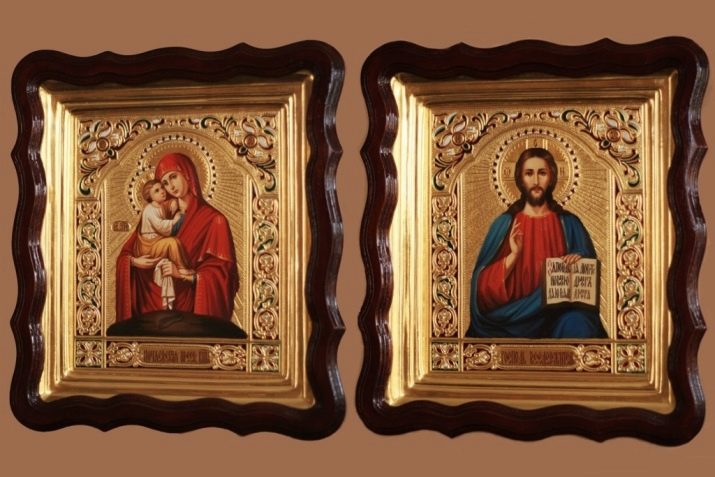
Wedding candles
They are sold in churches, they look very beautiful and solemn. The candles will burn for a long time during the ceremony.
To prevent hot wax from dripping onto your hands and clothes, you should buy white handkerchiefs, wrap the base of the candle, which you should hold on to.
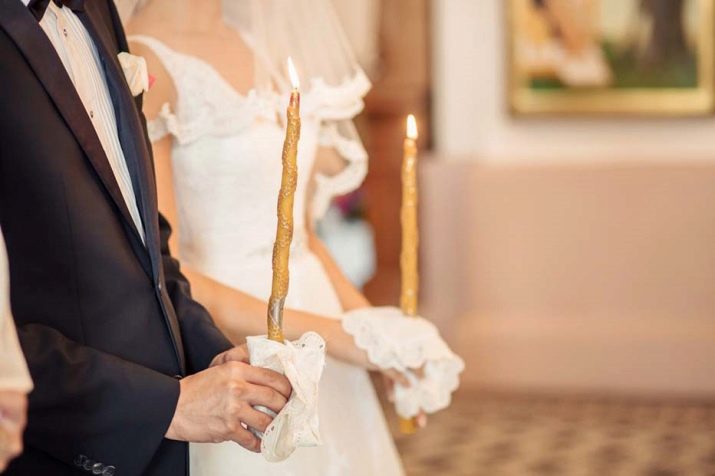
White shawls
Handkerchiefs are also needed for a wedding crown. With their help, witnesses will hold crowns over the heads of the newlyweds.
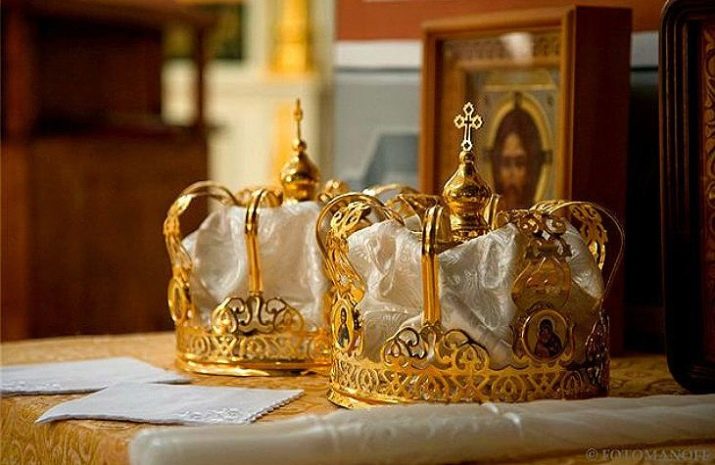
Towel big and white
According to some sources, it symbolizes the long life of the newlyweds, and according to others, a cloud that lifts them to heaven for marriage. Young people stand on the towel during the ceremony, after the ceremony it is left in the temple.
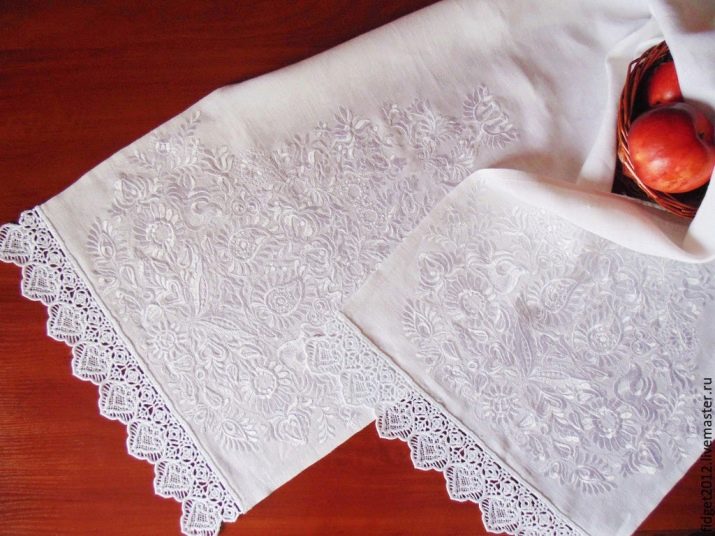
Rings
Smooth rings, without engravings and stones, mean a smooth, even life path. The inner side of the ring can be decorated with text - these can be words of a protective prayer, names, wedding date. Those who do not attach importance to symbolism acquire jewelry with engravings, but these should be exactly rings, and not rings with large stones. During the ceremony, the young people exchange jewelry three times: as a result, the bride has her husband's ring, and the groom has his wife's ring.

Crosses
A cross received at baptism should always be on an Orthodox person, especially when entering a church.
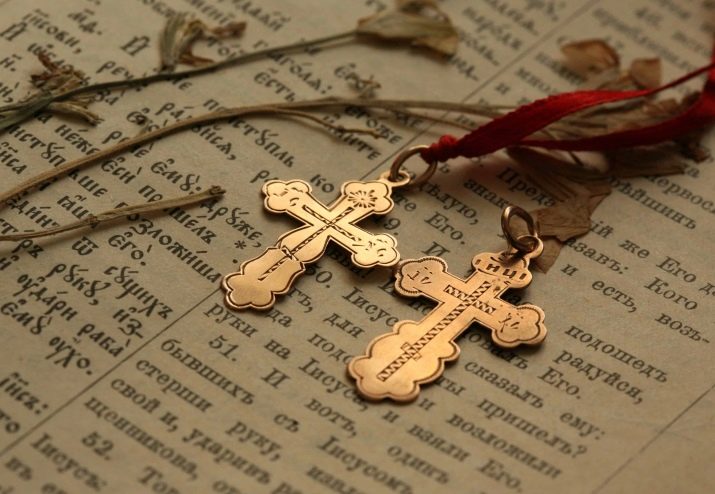
Cahors
Church Cahors will be needed during the ceremony.

Loaf
It is not a required attribute of the wedding. Parents meet the young with a loaf after the church.
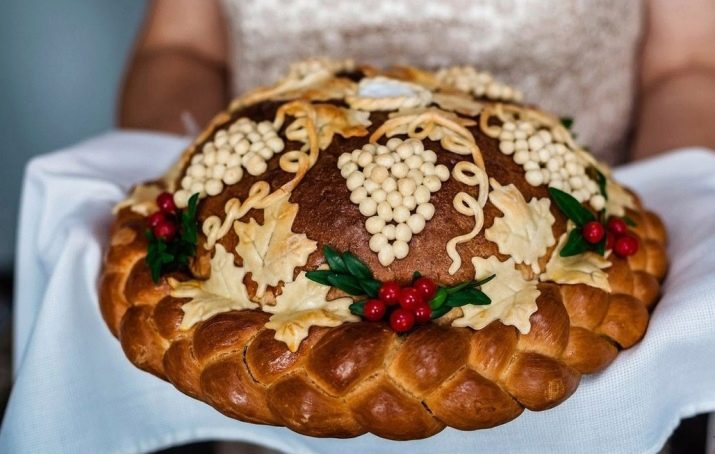
How do you prepare for the ordinance?
A wedding is a great spiritual union of two independent souls into a single whole. If you are imbued with the significance of the moment, then it is easier for children born in a marriage blessed from above to convey a spiritual position in life. Simply put, looking back at spiritual values, it is easier to bring up kind, decent children and provide yourself with a protected old age.
From the above, it becomes clear that the ceremony is not easy and it is necessary to prepare for it. In addition to documents and purchased wedding attributes, you should make sure that there are no prohibitions on the Orthodox rite (the list is given in the text above).
If possible, they need to be eliminated, for example, an unbaptized person must first undergo a baptismal ceremony.
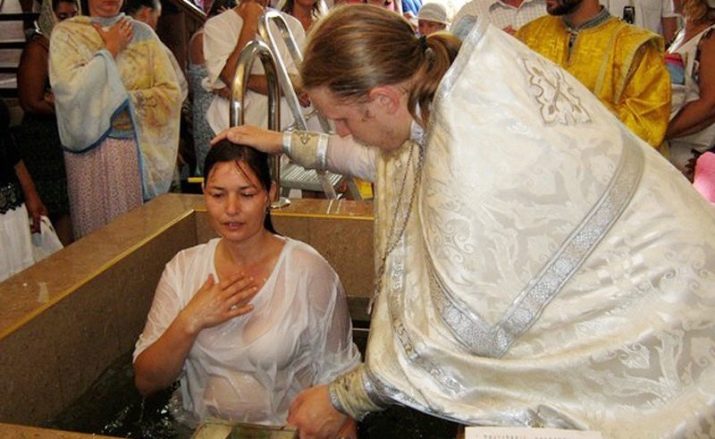
Parents' blessing
It would be ideal to receive a blessing from the parents. They are the closest people, their heartfelt message will become the guardian of the family for life. But unfortunately, it happens that the parents are no longer there by the time of the wedding, in which case the priest gives the blessing for the marriage.
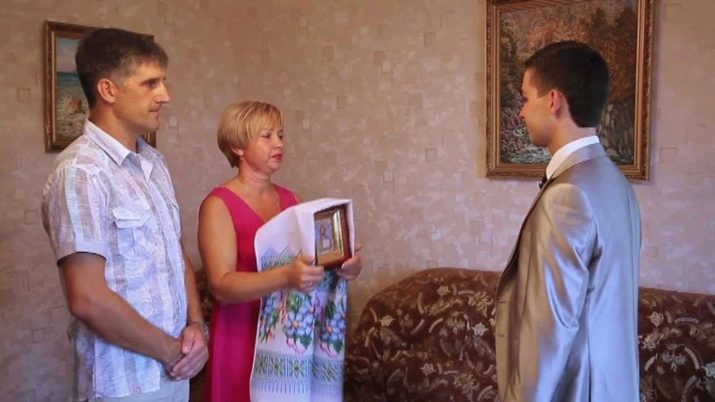
Choosing a church
Young people who decide to get married must choose the temple in which the ceremony will take place. It does not have to be huge and crowded; many people prefer to perform the sacrament in a small, quiet place. When choosing a temple, you should listen to your heart. It happens that in some church you feel comfortable, your soul rejoices, you don't want to leave - this is the very place.
For churchgoers, the question of choosing a church is usually not worth it, they get married in the church in which they are parishioners. This is not a rule: it’s just that these walls are familiar and familiar to them, and the priests are the people they love and trust.
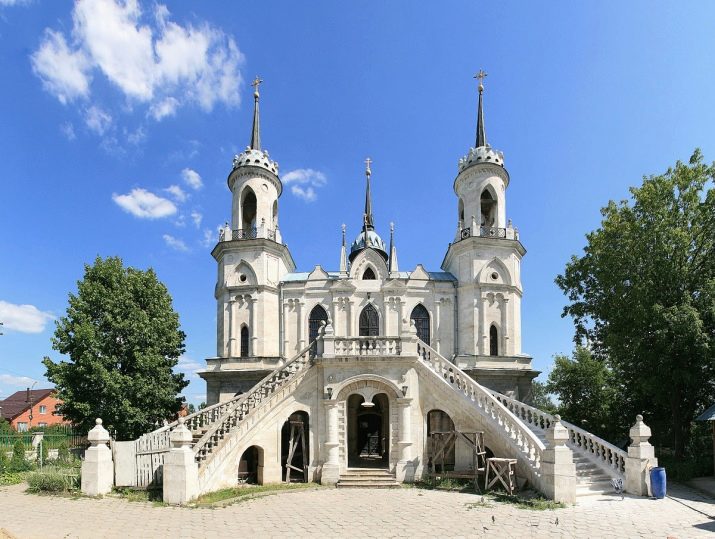
Spiritual conversations
After choosing a church, you should go to the priest and discuss the preparatory stage for the ceremony. Those who want to feel, learn more and understand the sacrament of the wedding, come to spiritual conversations. Communicating with the newlyweds, the priest finds out the purpose that they pursue, preparing for the ceremony. This is not always a sincere belief - it happens, a tribute to fashion, because it is beautiful, parents persuaded. The priests explain the meaning of the wedding, the church's view of the relationship to marriage. The ceremony itself becomes more understandable, but at the same time serious and responsible. At such conversations, the priest can be asked exciting questions about marriage, family, future children.
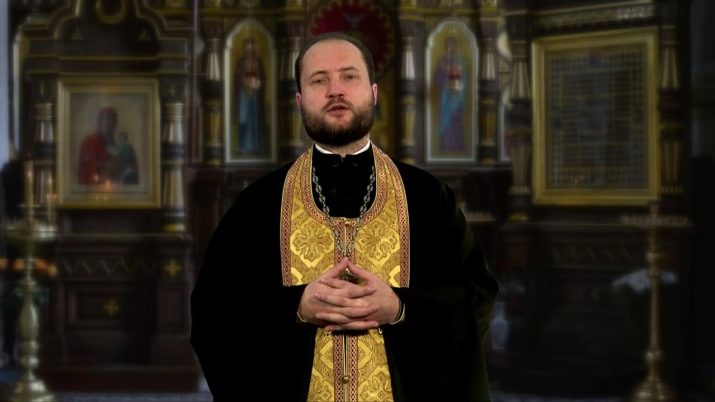
Date picker
The Orthodox faith is built on the Acquisition of the Holy Spirit (accumulation of the highest grace), which cannot be done without spiritual work - fasting and prayer. These are the days when holidays are not arranged, weddings are not held. Weddings are not performed during fasting. But there are also certain days of each week when this ceremony is not performed: Tuesday, Thursday and Saturday.
Orthodox Christians fast every Wednesday, remembering the day when Judas betrayed Christ and on Friday, when the Savior was crucified on the cross. Every Sunday is considered a small Easter, the day of the resurrection of the Lord. In the church's understanding, the day begins not from the first minute of the night and lasts until 24 hours, but from evening prayer to evening prayer. It turns out that the church honors all three events every week from Tuesday, Thursday and Saturday evenings, wedding nights are prohibited at this holy time of the day, so there is no wedding ceremony.
Taking into account the church rules of life, it is impossible to choose the date of the ceremony when we want, it should be agreed with the priest. There are four fasts a year, and some of them last up to almost two months, so be patient. If the goal is to hold the ceremony in the registry office and in the church on the same day, then it is better to first negotiate with the church.

When choosing a date, the bride should take into account some points of female physiology and remember that during menstruation, one cannot visit the temple.
Witnesses
The selection of witnesses should be considered responsibly. During the wedding, not everyone is suitable for this role.
You cannot take as witnesses:
- people of other faith;
- not baptized in Orthodoxy;
- atheists;
- divorced;
- living in a civil marriage;
- parents of one of the newlyweds.
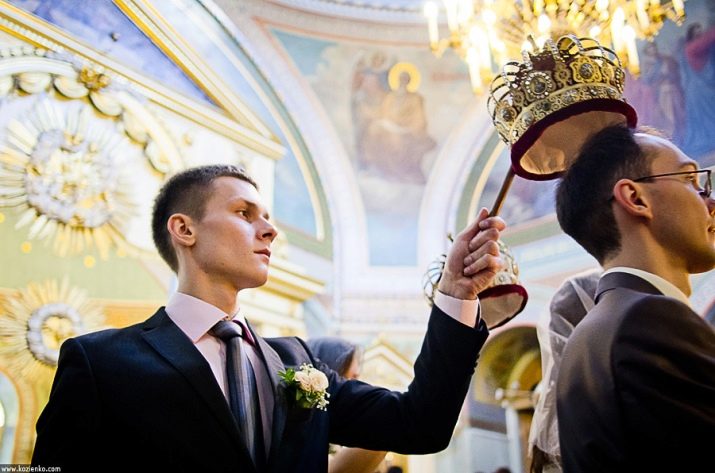
It is better to invite as witnesses those for whom deep respect is experienced, from whom one can take an example, because they become spiritual relatives of the young. By the way, about kinship: if you invite an unmarried couple as witnesses, then they will never be able to get married, as they become spiritual relatives.
It should be borne in mind that for most of the ceremony, witnesses will have to hold weighty crowns on an outstretched hand above the heads of the young, and they should be warned about this in advance. A fragile short girl cannot cope with such a task; it is better to pick up a strong pair, superior in height to the newlyweds. Friends, relatives and simply respectable people are allowed as witnesses.
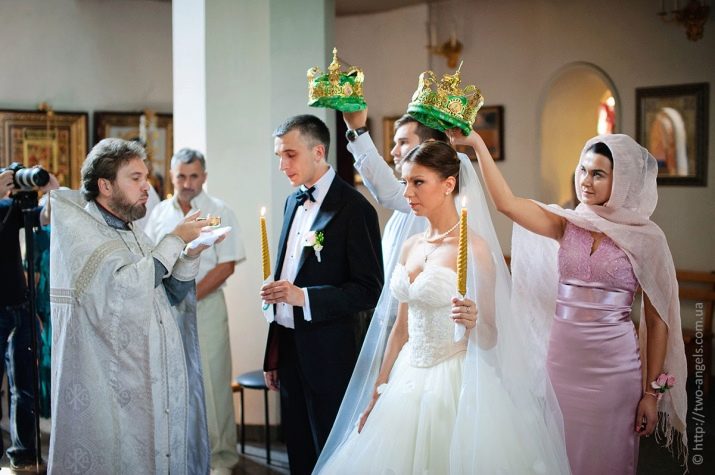
Temple behavior
When preparing for the wedding, you should familiarize yourself with the rules for being in the temple. A beautiful wedding ceremony will be remembered for a lifetime and you should not spoil it with behavior that is unacceptable for a place of prayer. Recommendations apply not only to newlyweds, but also to guests.
Let's try to figure out what can and cannot be done in the temple.
- You can't be late for your own wedding. Guests should also be polite and arrive on time.
- When entering the church, women put on and men take off their hats.
- It is necessary to turn off mobile phones so as not to distract from the wedding ceremony.
- The appearance should not be defiant, modesty in clothes and make-up is needed.
- You can not interfere with the ceremony with loud conversations and fussy behavior.
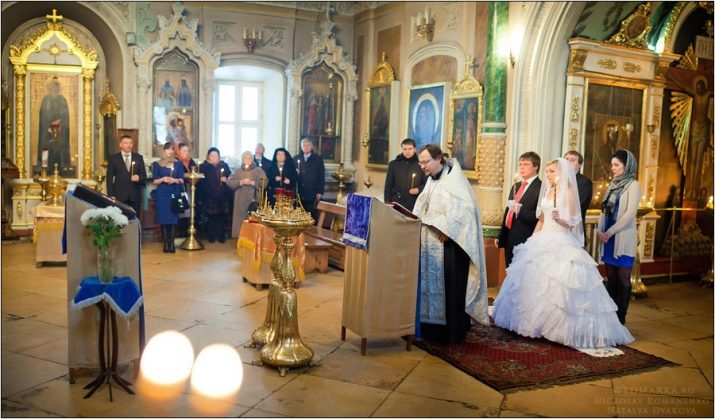
Young people should not look back at guests or look at the decoration of the church. You need to understand that the great sacrament is not a game, and focus on the wedding, listen to what the priest is talking about and answer questions.
- You need to be baptized with your right hand: from top to bottom, from right to left.
- In the temple, they do not hold hands and do not put their hands in their pockets.
- Young people should familiarize themselves the day before with the words that they will have to pronounce during the wedding.
- Video filming should be arranged in advance. Church ministers can recommend a specialist who knows how to properly film the ceremony. In his frame there will be not only newlyweds and guests, he will be able to transfer the camera to icons, an altar, a ritual towel and other accent points in time. This will be a filming of a wedding ceremony, not a group of people in the frame.
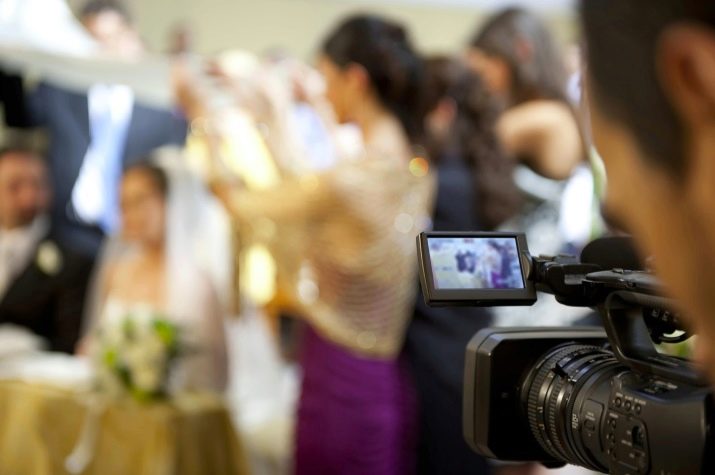
The rules for being in the temple only look numerous, in fact, there is nothing unusual about them. For an educated, cultured person, this is just the norm of life.
Now we turn to the main preparatory moment - spiritual cleansing. You need to participate in the great sacrament with a pure soul and bright thoughts. For cleansing, the young keep a three-day fast, confess and receive communion.
Fast
During fasting, you cannot eat food of animal origin: meat, milk, eggs. This helps the body to keep from gluttony and redirect energy to spiritual work. In the moments of preparation for communion, they do not live an intimate life, do not participate in entertainment activities. On such days, one thinks about spiritual activities.

Confession
At confession, one should not be afraid to tell about everything that worries, the father is not a judge, but a mediator between us and God. Having received forgiveness, having purified your soul, you can enter a new important stage in your life.
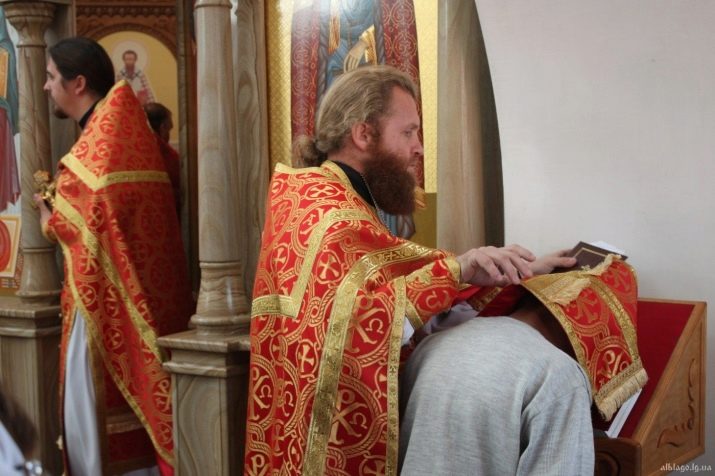
Participle
Before communion, you must not eat or drink anything. The priest gives to taste a piece of bread soaked in cahors, symbolizing the blood and flesh of the Savior. It is believed that this ceremony brings special grace to the soul and body.
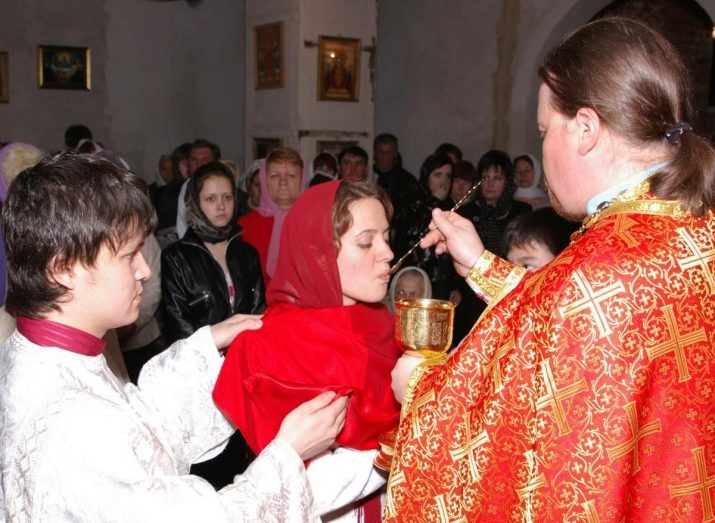
Rite rules
The ceremony begins with an engagement and ends with a wedding. It goes as follows.
- Betrothal. The priest blesses the newlyweds and gives them lighted candles.
- A prayer is said for the newlyweds, for the salvation of their souls and a blessing for healthy offspring.
- Then the priest puts the rings on the young and blesses them with a cross.
- It was at this moment that the newlyweds exchange rings three times. At the last stage of the betrothal, a closing prayer is read.
- Wedding. A couple with candles in their hands follow the priest with a censer. He leads them to the center of the temple.
- The bride and groom stand on a towel spread on the floor in front of the analogue.
- When asked about voluntary marriage, they answer in the affirmative, from that moment they are considered husband and wife.
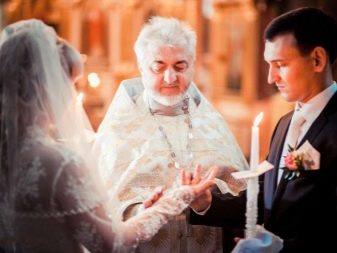
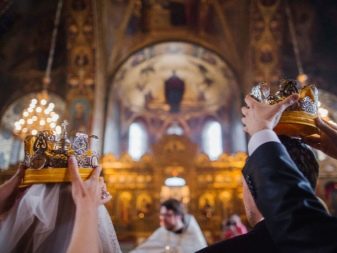
- Crowns are laid on the young, most often, they are held by witnesses. The priest reads the most important prayers in which he asks the Savior for a heavenly crown for the newlyweds.
- After reading the holy texts, the young people are brought a cup and offered to taste wine from one vessel.
- The priest unites the spouses by clasping their hands together.
- The troparia are singing in the church, and the priest leads the groom and the bride around the lectern. Walking occurs three times.
- At this stage, the crowns are removed and the final prayers are read, the newlyweds are allowed to kiss.
- At the altar, couples respectfully apply themselves to the images of the Savior and the Mother of God.
- The newlyweds kiss the cross. The priest gives them icons that will protect the family on the path of life.
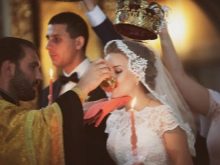
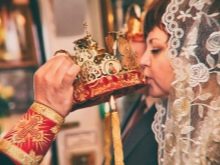
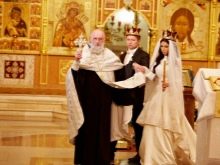
The exciting moments of the wedding will be remembered forever.It is necessary not only to remember a beautiful rite, but to carry within oneself all the power of Divine blessing, without turning away from the spiritual path.
For information on how to prepare for a church wedding, see the next video.








